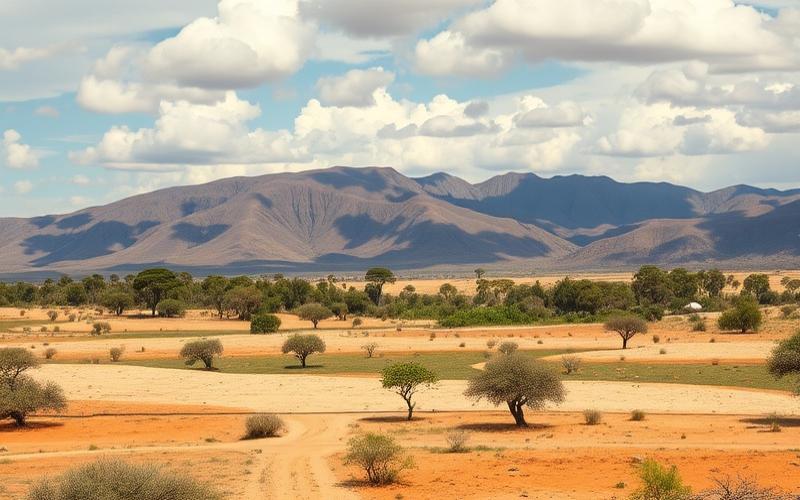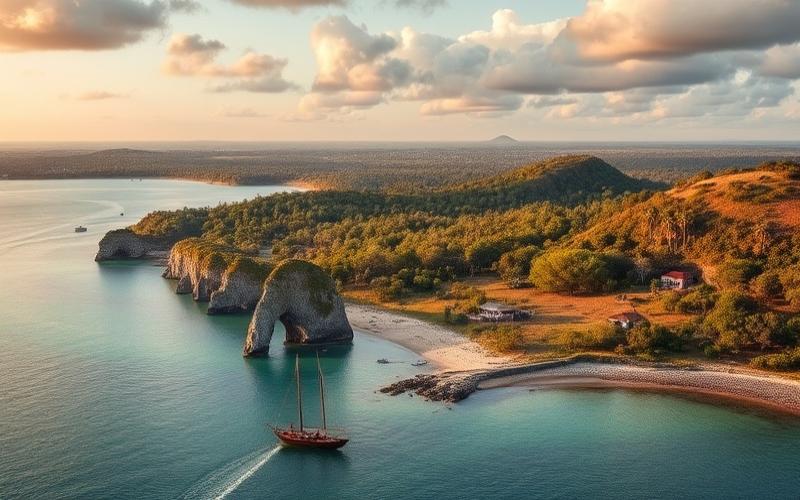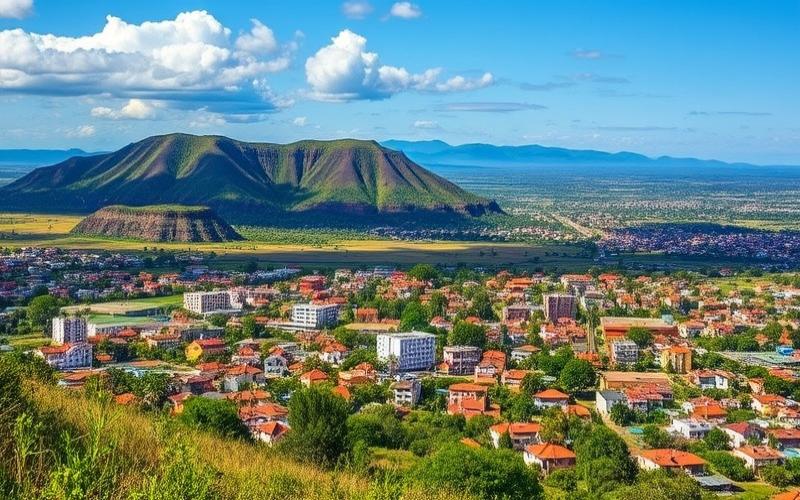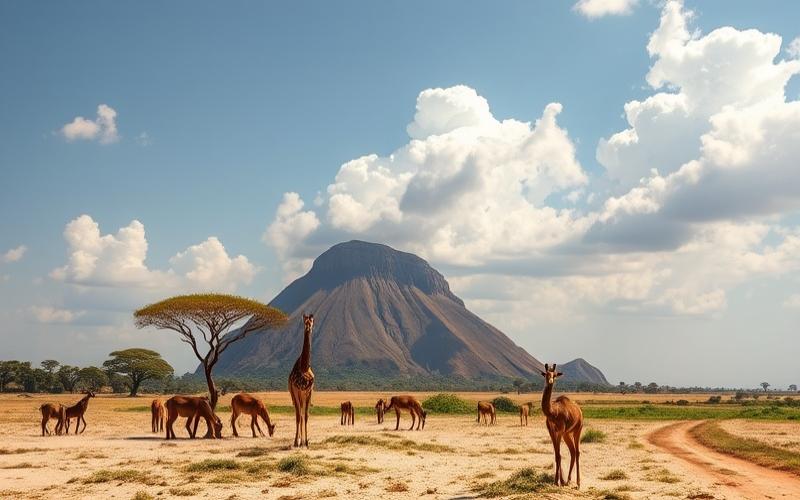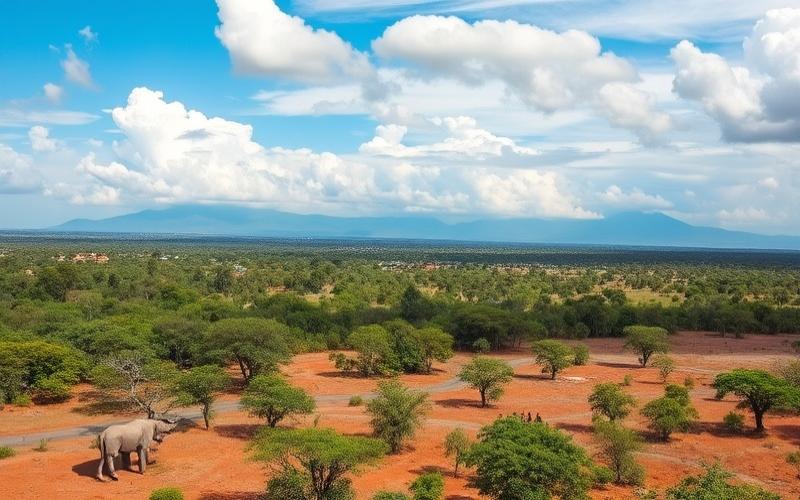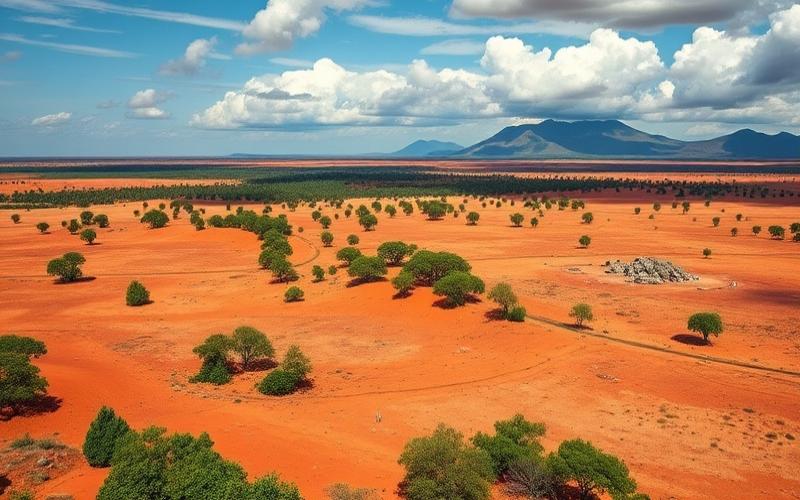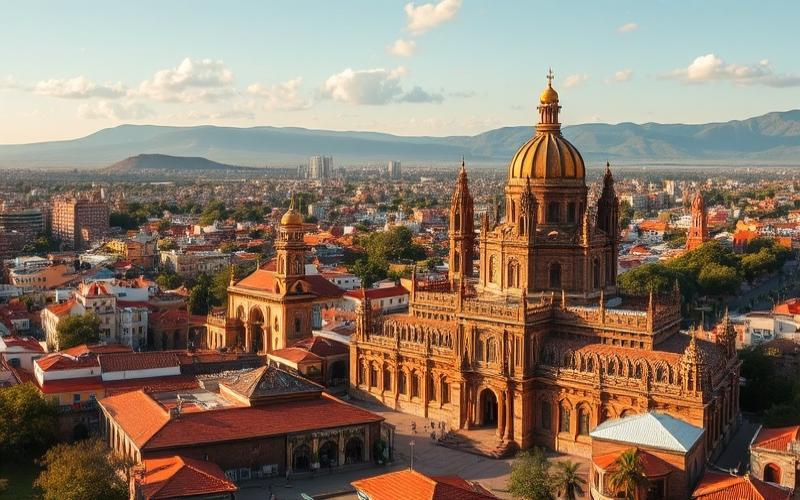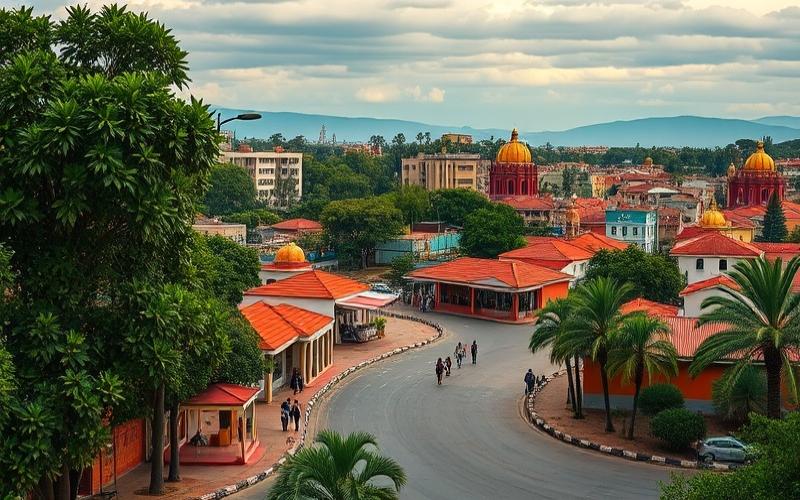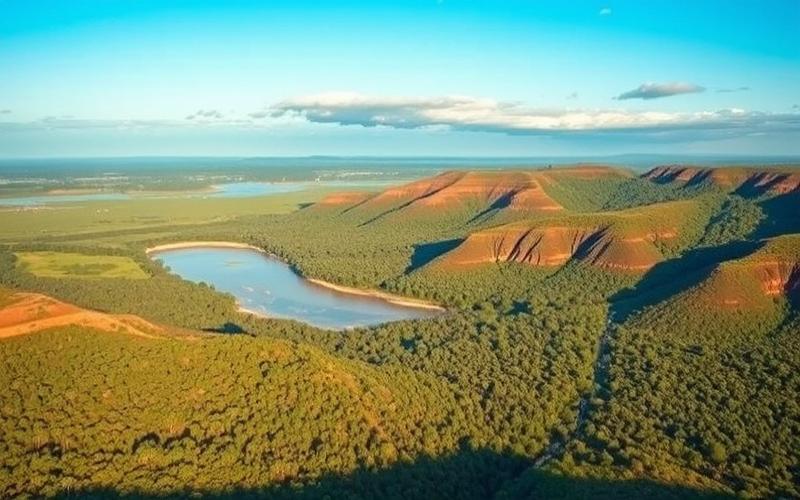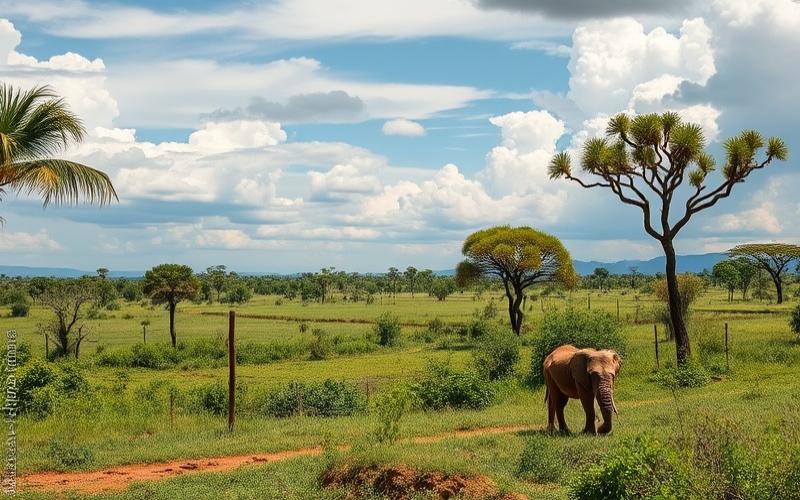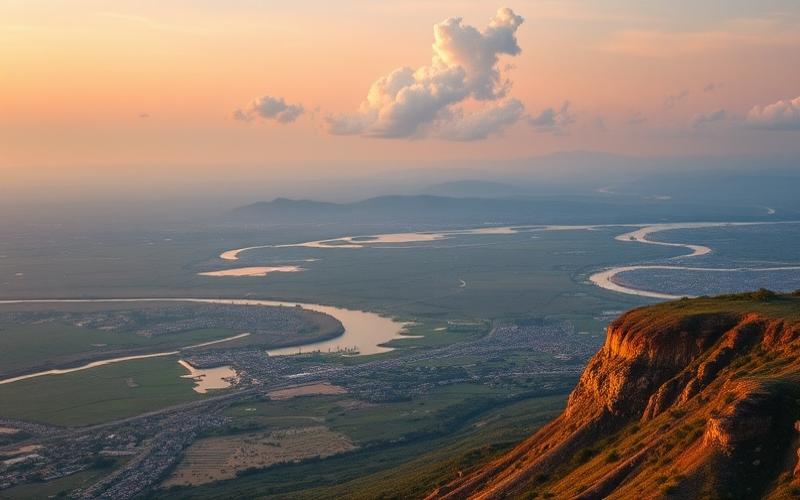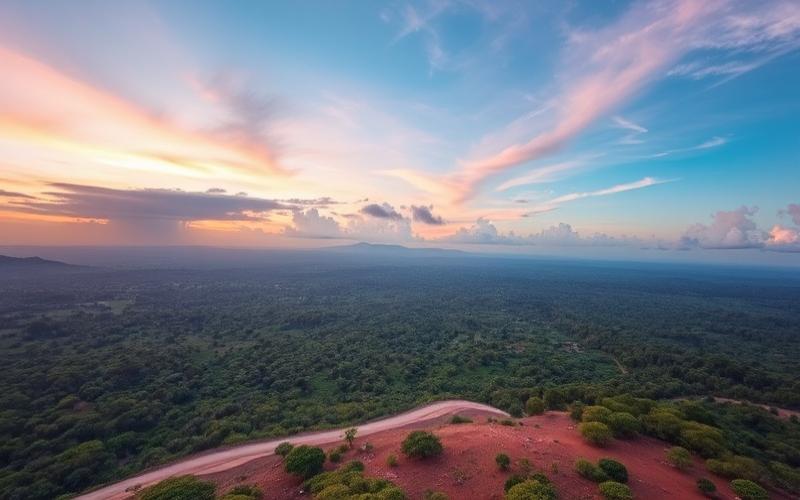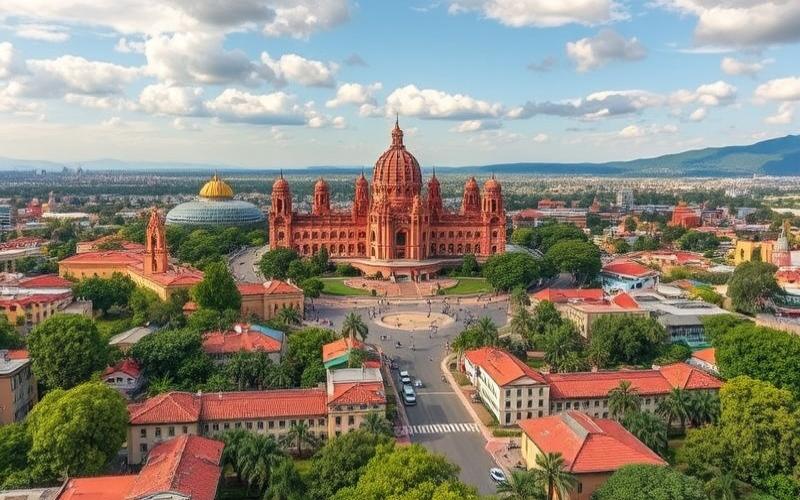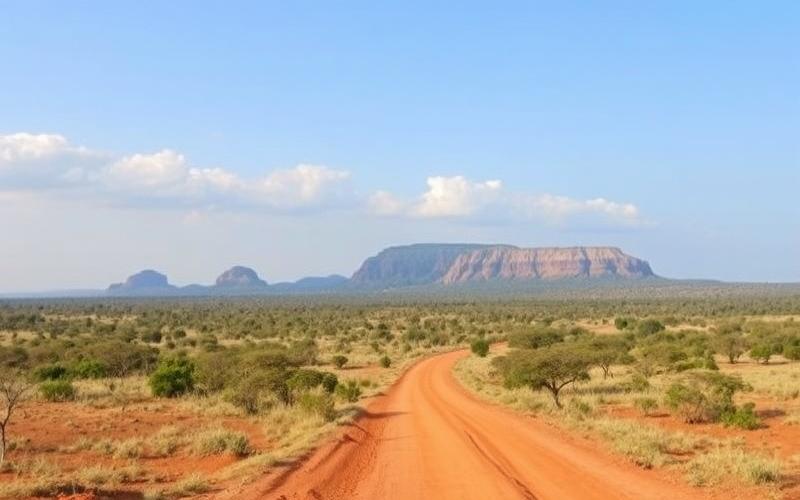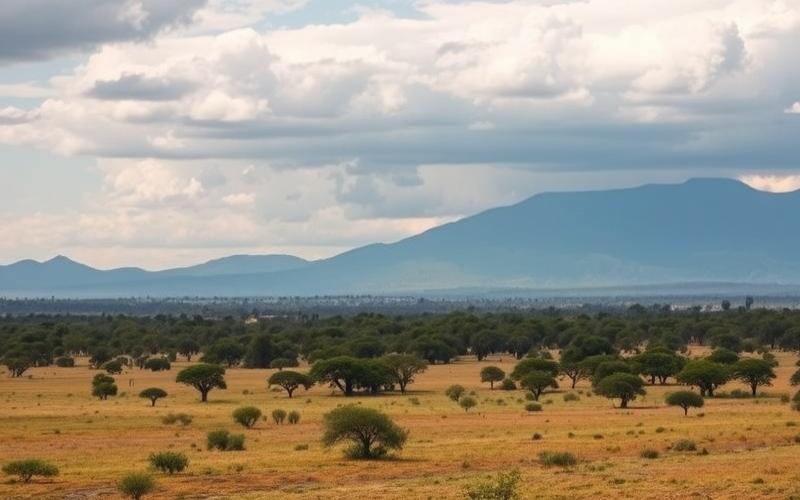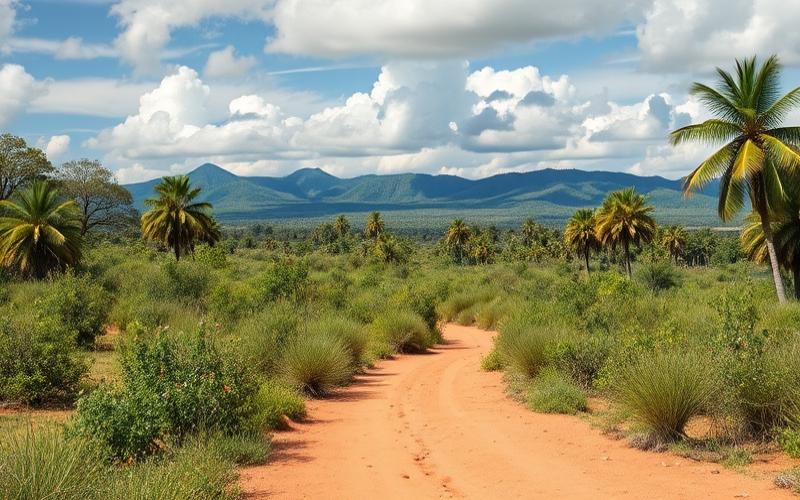
 Published on and written by Cyril Jarnias
Published on and written by Cyril Jarnias
The rise of crowdfunding is revolutionizing Madagascar’s real estate sector, offering unprecedented opportunities for investors seeking diversification and citizens eager to participate in large-scale projects. The Malagasy economic landscape, marked by structural challenges and increased funding needs, now sees participatory financing as a promising solution to energize and secure investments.
By using innovative digital platforms, this collective approach not only stimulates local entrepreneurship but also integrates the population into projects that were previously inaccessible to them.
Real Estate Crowdfunding in Madagascar
Discover how this rapidly expanding trend is transforming the rules of the game in Madagascar’s real estate market and why it constitutes an essential lever for the island’s sustainable economic development.
Basics of Real Estate Crowdfunding in Madagascar
Real estate crowdfunding is a participatory financing method that allows capital to be raised from a large number of investors to fund real estate projects. This economic model relies on collective fundraising to support construction, renovation, or real estate acquisition operations.
Fundamental Principles of Real Estate Crowdfunding
The operation of real estate crowdfunding generally follows several key steps:
- A developer or real estate operator presents their project on a specialized platform
- The platform analyzes the project’s feasibility and potential profitability
- Investors choose the projects they wish to fund and determine their investment amount
- Once the amount is collected, the funds are used to carry out the real estate operation
- At the end of the project, investors recover their initial capital plus generated interest
Real estate crowdfunding revolves around three main models:
- Donation (with or without compensation)
- Loan (with or without remuneration)
- Investment with direct financial participation (interest or dividends)
Adaptation to the Malagasy Context
In Madagascar, real estate crowdfunding is beginning to emerge as an alternative to traditional financing. Although less developed than in Senegal or Cyprus, this model addresses specific needs in a country where access to bank credit remains limited for many developers.
The Malagasy real estate projects that benefit most from crowdfunding are:
- Affordable residential housing in expanding urban areas
- Tourism infrastructure (bungalows, small hotels)
- Renovations of historic buildings in city centers
- Small commercial buildings in emerging economic zones
Platforms and Accessibility
| Platform | Project Type | Investment Threshold | Average Return |
| Local Platforms | Residential | €500-€1,000 | 6-8% |
| International Platforms | Mixed | €1,000-€5,000 | 8-12% |
| Community Initiatives | Social Housing | €100-€500 | 4-6% |
The Malagasy real estate crowdfunding market remains characterized by:
- A predominance of international platforms adapted to the local context
- Relatively accessible investment thresholds (starting from €500)
- A preference for short-term projects (6-24 months)
Regulatory Framework and Challenges
The Malagasy legal framework concerning real estate crowdfunding is still developing. Investors must navigate between:
- Absence of specific crowdfunding regulation
- General laws on foreign investment
- Specific land regulations in Madagascar
- Sometimes complex administrative procedures
The main challenges encountered include:
- Legal uncertainty regarding certain land titles
- Currency fluctuations affecting returns
- Difficulty in accurate risk assessment
- Lack of transparency from some operators
Despite these obstacles, real estate crowdfunding in Madagascar presents significant advantages:
- Democratization of real estate investment
- Bypassing traditional banking system constraints
- Diversification opportunities for small investors
- Support for local real estate development
For Malagasy developers, this financing method offers a valuable alternative to traditional bank loans, particularly for medium-sized projects requiring between €50,000 and €500,000 in funding.
Good to Know:
Real estate crowdfunding in Madagascar relies on collecting funds from multiple investors to finance projects such as affordable housing or commercial complexes. Local platforms like FIANTSO and international ones such as Afriland apply this model by adapting their offerings to the specific needs of the Malagasy market. The most frequently funded projects include the development of residential neighborhoods in major cities like Antananarivo. Malagasy regulations governing crowdfunding remain embryonic, which can present opportunities for experienced investors but also risks related to limited investor protection. A notable example is the success of the Anosivelo neighborhood development project, which quickly raised funds through the engagement of a community of local investors. Despite attractive return potential, the main challenge is accurately assessing risks associated with the immature legal framework and the constantly evolving real estate market.
How Participatory Real Estate Investment Works
Participatory Real Estate Investment in Madagascar
Real estate crowdfunding, also called participatory real estate financing, is an investment method allowing a large number of people to participate in funding real estate projects. It literally means “crowd funding” where individuals, sometimes alongside institutional investors, collectively contribute to real estate operations. This mechanism represents an innovative alternative to traditional financing methods, offering investors the opportunity to get involved in real estate projects with often more accessible entry points.
Within participatory real estate financing, investors generally acquire bonds (in the financial sense) linked to a specific project. They receive annual interest during the funding period and recover their initial investment at maturity, typically when the property is sold by the developer. The investment duration usually varies between 4 and 8 years depending on the nature of the project (new construction or renovation).
The Real Estate Market in Madagascar and Crowdfunding
Real estate investment in Madagascar represents an attractive opportunity for investors, particularly expatriates, seeking to diversify their assets. The country presents interesting potential for real estate crowdfunding development, although this sector is still emerging.
In Madagascar, investors can explore different real estate strategies, including:
- Buy-to-let: acquisition of apartments or houses generating rental income
- Buy-to-sell: targeting undervalued properties for capital gains
Real estate crowdfunding could facilitate these investments by allowing individuals to participate in larger-scale projects with limited capital.
Investment Process via Real Estate Crowdfunding
To participate in a real estate crowdfunding project, the investor generally follows these steps:
- Registration on a specialized platform
- Selection of a real estate project matching their objectives
- Determination of the amount to invest
- Transfer of funds
- Project monitoring until completion
The investor receives interest during the investment period and recovers their initial capital at project maturity, typically when the developed property is sold.
Advantages and Risks of Real Estate Crowdfunding in Madagascar
| Advantages | Risks |
|---|---|
| Potentially high returns | Risk of capital loss |
| Asset diversification | Limited liquidity (locked capital) |
| Accessibility (affordable entry points) | Specific risks of the Malagasy market |
| Participation in concrete projects | Potentially less developed regulatory framework |
| Exposure to real estate market without direct management | Risks related to real estate developers |
Real estate crowdfunding in Madagascar, like any investment, presents opportunities but also risks that should be carefully evaluated. The country’s economic and legal specificities must be considered in the investment decision.
Regulatory Framework
In France, real estate crowdfunding platforms are subject to specific regulations and must hold the status of Participatory Investment Advisor (CIP) regulated by the AMF and/or Participatory Financing Intermediary (IFP) regulated by the ACPR.
In Madagascar, the regulatory framework specifically governing real estate crowdfunding is still developing. Investors must therefore inquire about the legal provisions applicable to real estate investments in the country and the guarantees offered by platforms proposing this type of investment.
Real estate crowdfunding represents an innovative approach to investing in Madagascar’s real estate market, allowing investors to participate in real estate projects with accessible amounts while targeting potentially attractive returns. However, as with any investment, thorough project analysis and good understanding of risks are essential before committing.
Good to Know:
Participatory investment or crowdfunding in Madagascar’s real estate allows individuals to financially participate in real estate projects by contributing money through online platforms like Ethiccapital and Lendopolis. Investments are selected based on profitability, reliability, and social impact criteria. To invest, one must register on a platform, choose a project based on preferences, and transfer the desired funds. Potential benefits include attractive returns and portfolio diversification, but risks include economic instability and gaps in the Malagasy regulatory environment. A success example is the renovation of residential buildings in Antananarivo, offering significant returns to investors. However, legal conditions surrounding this type of investment require vigilance, as legal guarantees may be limited by the country’s developing legal framework.
Reliable Real Estate Crowdfunding Platforms in Madagascar
List of main real estate crowdfunding platforms available in Madagascar:
- Kiva: International platform allowing participatory funding of projects, including real estate and entrepreneurial initiatives in Madagascar. Its reliability stems from its longevity, operational transparency, and emphasis on socially impactful projects.
- International Platforms (non-specialized in real estate): Some generalist platforms like Kiva are used to fund local real estate initiatives in the absence of specialized local players.
- Absence of Local Specialized Platforms: To date, no Malagasy platform dedicated exclusively to real estate crowdfunding has been identified. Investors therefore turn to international or mixed players.
Operating Mode:
- Connection between project leaders (real estate developers or entrepreneurs) and individual investors seeking to diversify their portfolio.
- Preliminary project selection based on criteria defined by the platform (social impact, economic viability).
- Collective investment in the form of loans or participatory purchase with return on investment based on project performance.
Criteria to Evaluate Platform Reliability:
| Criterion | Description |
|---|---|
| Track Record | Years of activity and total volume financed |
| User Testimonials | Verified customer reviews, satisfaction rate |
| Transparency | Clarity on fees, risk management, regular publication of results |
| Post-Funding Follow-up | Project support after fundraising |
| Default/Delay Rate | Actual percentage observed per project |
Concrete Examples:
A typical example is urban micro-projects funded via Kiva that enable the development or renovation of individual homes in several Malagasy cities. These campaigns detail the funding purpose and report high repayment rates thanks to local support.
Tools or Resources to Secure Investments:
- Complete files published for each project with financial analysis forecasts
- Online comparative tools to evaluate expected return vs. risk
- Standard contracts clearly defining rights and obligations
- Access to historical indicators (default/delay rates)
Advantages for Local/International Investors:
Advantages
- Geographic diversification possible even with small capital
- Facilitated access to real estate market without direct purchase or complex rental management
- Participation possible from just tens to hundreds of euros depending on chosen platform
- Direct opportunity in local socio-economic development
Potential Challenges
- Low number of specialized local players limits choice
- Nascent regulation may complicate certain legal aspects
- Risk specific to Malagasy real estate sector (land security)
- Potential delays in repayments linked to local economic context
To Maximize Security and Potential Return, Investors Are Recommended To:
- Prioritize internationally recognized platforms with solid track records.
- Carefully analyze each proposed file and its associated guarantees before any financial commitment.
- Stay regularly informed through communities already investing in these emerging markets to share authentic field feedback.
Good to Know:
In Madagascar, the main real estate crowdfunding platforms include MadaCrowdInvest and RealEstate MADA, which stand out for their reliability due to positive track records and encouraging investor feedback. Important evaluation criteria include transparent operations and satisfied user testimonials. For example, the MadaCrowdInvest platform successfully funded the construction of a residential complex in Antananarivo. To secure your investments, it’s recommended to use project verification tools and due diligence offered by platforms. Advantages for local and international investors include simplified access to high-potential real estate projects, although they must also manage challenges such as local economic fluctuations and constantly evolving regulations.
Disclaimer: The information provided on this website is for informational purposes only and does not constitute financial, legal, or professional advice. We encourage you to consult qualified experts before making any investment, real estate, or expatriation decisions. Although we strive to maintain up-to-date and accurate information, we do not guarantee the completeness, accuracy, or timeliness of the proposed content. As investment and expatriation involve risks, we disclaim any liability for potential losses or damages arising from the use of this site. Your use of this site confirms your acceptance of these terms and your understanding of the associated risks.

